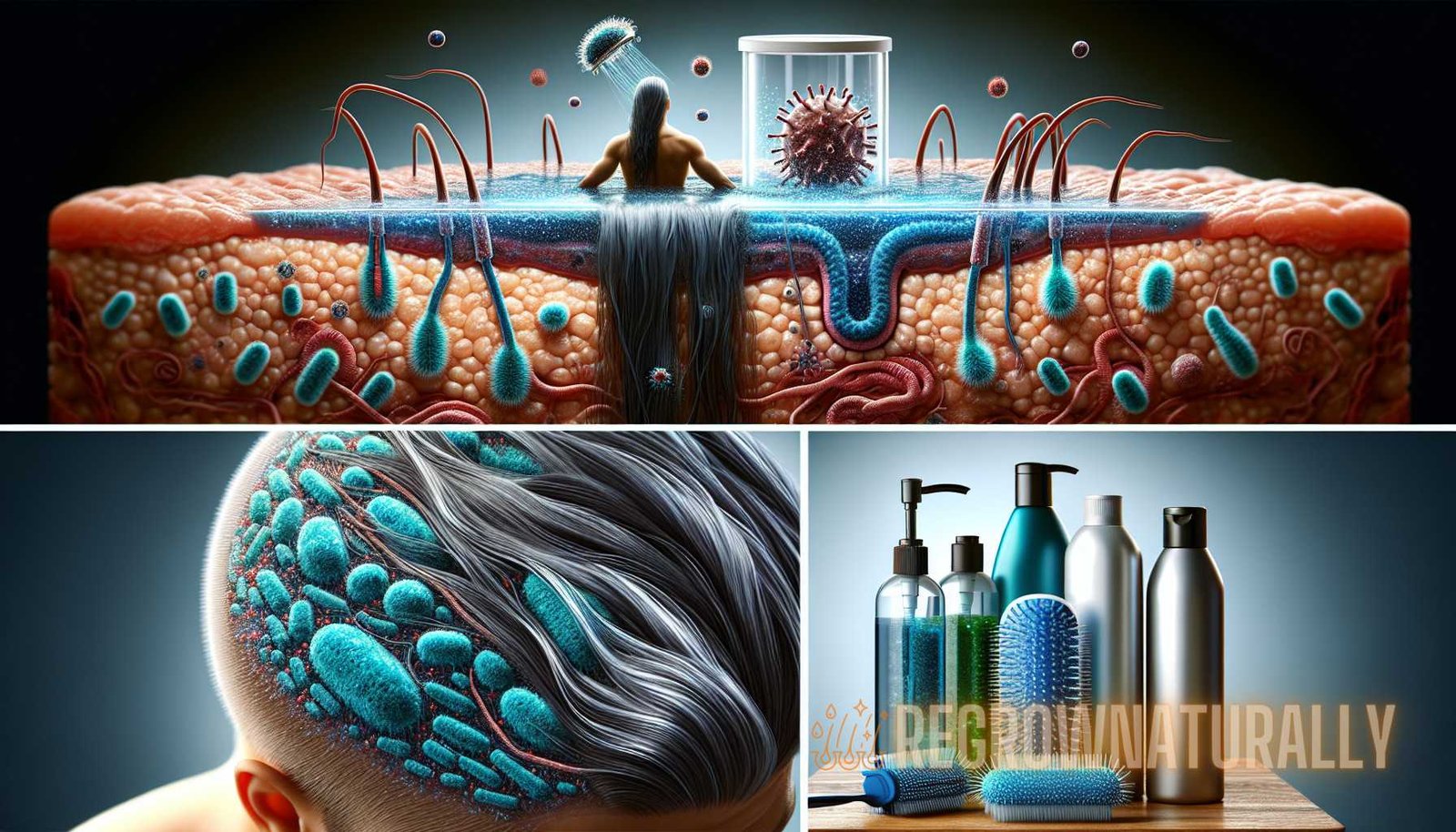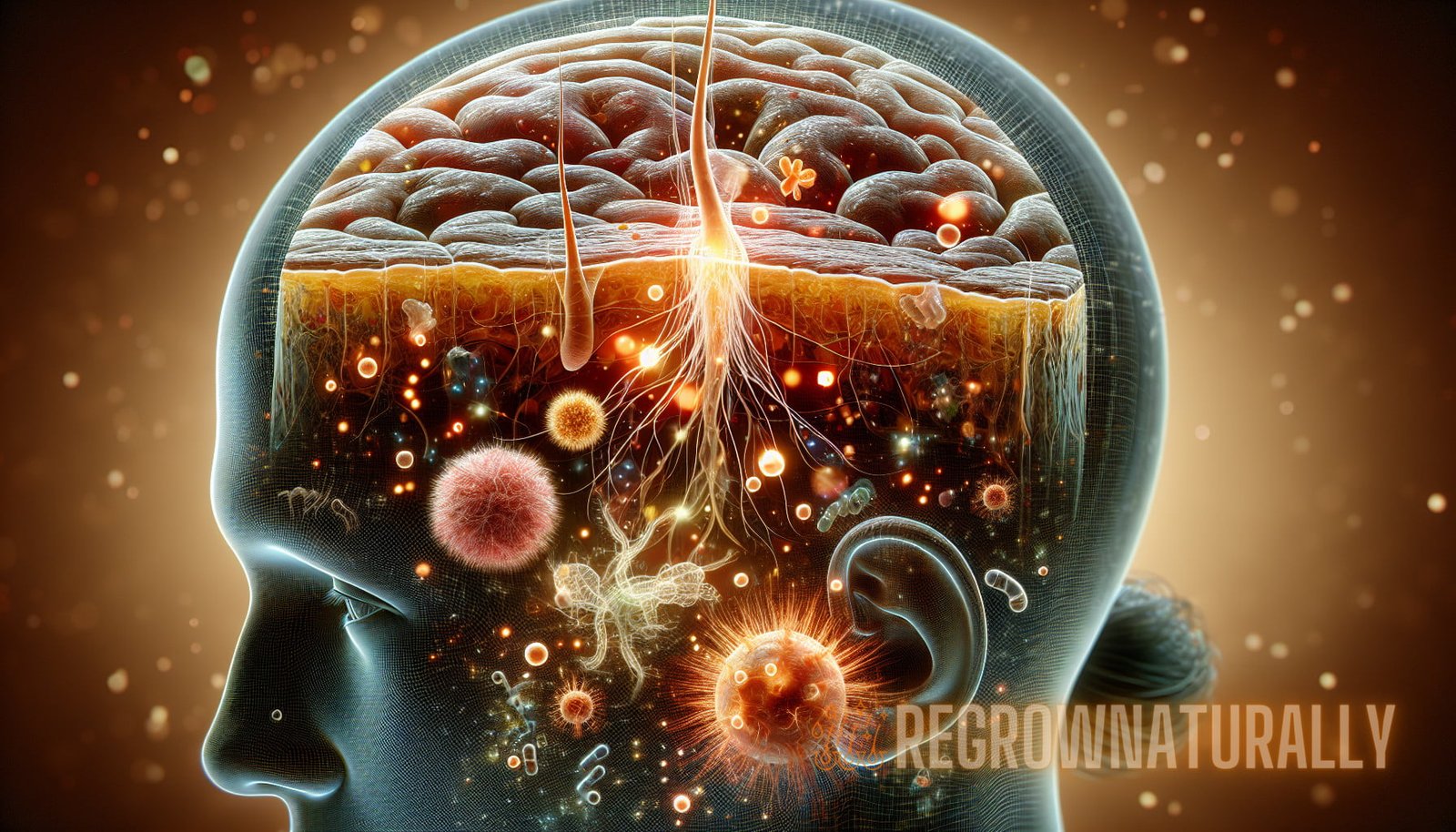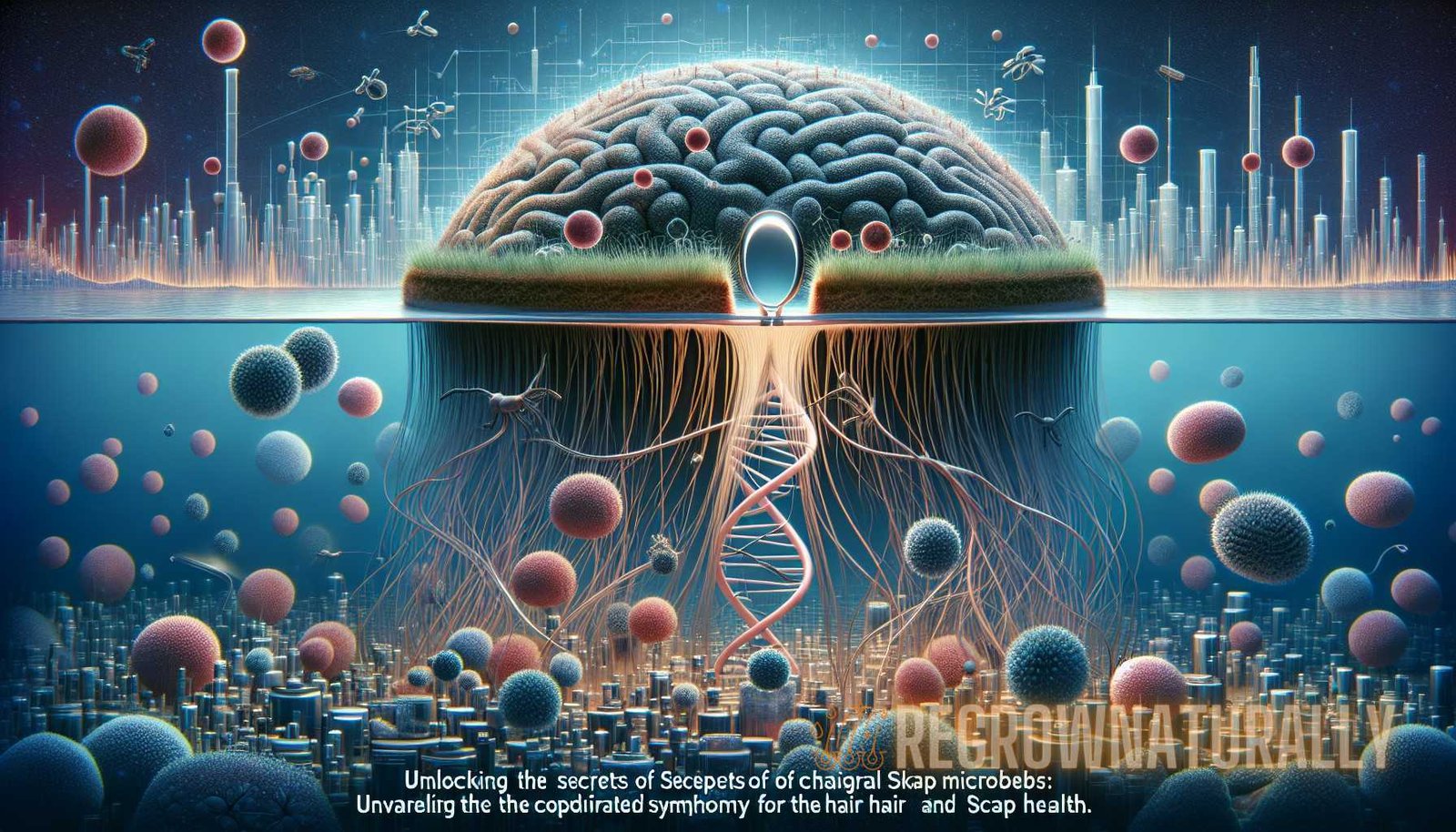Introduction
The human scalp is a fascinating microcosm of microbial activity. Just beneath the surface, an intricate ecosystem of microorganisms thrives, forming what is known as the scalp microbiome. This complex community of bacteria, fungi, and other organisms plays a crucial role in maintaining scalp health and balance. Understanding the microbial marvels that reside on our scalps is essential for effective scalp care and overall well-being.
What is the Scalp Microbiome?
The scalp microbiome refers to the diverse array of microorganisms that inhabit the scalp. These organisms include bacteria, fungi, and even viruses. Despite the scalp’s relatively small surface area, it supports a robust and intricate ecosystem. Like the gut microbiome, the scalp microbiome is unique to each individual, influenced by genetics, environment, hygiene practices, and more.
The Role of the Scalp Microbiome
The scalp microbiome serves several important functions:
1. Protection: The microbes on our scalps form a protective barrier against harmful pathogens. They compete for resources and space, making it difficult for harmful bacteria and fungi to establish themselves. 2. Regulation: The scalp microbiome helps regulate the pH balance of the scalp. A balanced pH level is essential for healthy hair growth and scalp integrity. 3. Immune system modulation: The microorganisms on our scalps interact with our immune systems, helping to train and regulate immune responses. This interaction is crucial for maintaining immune homeostasis and preventing inflammatory scalp conditions.Key Players in the Scalp Microbiome
The scalp microbiome is primarily composed of bacteria and fungi. Some of the most common bacterial species found on the scalp include:
- Propionibacterium acnes
- Staphylococcus epidermidis
- Staphylococcus aureus
- Corynebacterium
- Malassezia restricta
These bacteria play important roles in maintaining scalp health and balance, but imbalances can lead to scalp conditions such as dandruff, seborrheic dermatitis, and scalp acne.
The Importance of a Healthy Scalp Microbiome
Maintaining a healthy scalp microbiome is vital for overall scalp health and well-being. A well-balanced microbiome supports the following:
Hair Growth and Thickness
A healthy scalp microbiome promotes hair growth and thickness by providing a conducive environment for hair follicles. The presence of beneficial bacteria and fungi on the scalp prevents the colonization of harmful organisms that can inhibit hair growth.
Scalp Conditions Prevention
An imbalanced scalp microbiome can lead to various scalp conditions such as dandruff, itching, inflammation, and even hair loss. By maintaining a healthy scalp microbiome, you can reduce the risk of developing these conditions.
Immune System Support
The scalp microbiome interacts with the immune system to regulate immune responses and promote a balanced immune system. This interaction helps prevent excessive inflammation and immune system dysfunction, which can lead to scalp conditions and even systemic health issues.
Maintaining pH Balance
The scalp microbiome is involved in maintaining the pH balance of the scalp. A balanced pH level is important for healthy hair growth and scalp health. An imbalanced pH can lead to increased vulnerability to infections and scalp conditions.
Factors Affecting the Scalp Microbiome
Several factors can influence the composition and balance of the scalp microbiome. These include:
Genetics
Each individual’s genetics play a role in determining the composition of their scalp microbiome. Certain genetic variations may make some individuals more susceptible to specific scalp conditions or favor the growth of certain microorganisms.
Environment
The environment we live in can significantly impact the scalp microbiome. Factors such as climate, humidity, pollution, and exposure to UV radiation can alter the microbial balance on our scalps. For example, living in a highly polluted area may increase the prevalence of certain harmful bacteria on the scalp.
Hygiene Practices

Personal hygiene practices, such as shampooing frequency and use of hair products, can influence the scalp microbiome. Over-washing or excessive use of harsh hair products can disrupt the microbial balance on the scalp, leading to an imbalanced microbiome.
Diet and Nutrition
Diet and nutrition also play a role in shaping the scalp microbiome. Certain dietary components, such as probiotics and prebiotics, can promote the growth of beneficial microorganisms on the scalp. Conversely, a diet high in sugar and processed foods may favor the growth of harmful bacteria and fungi.
Hormones
Hormonal fluctuations can impact the scalp microbiome. For example, the increase in sebum production during adolescence can provide an ideal environment for certain harmful bacteria, leading to acne and other scalp conditions.
Scalp Microbiology and Hair Loss
The relationship between the scalp microbiome and hair loss is a topic of ongoing research. While the precise mechanisms are not yet fully understood, there is evidence to suggest that imbalances in the scalp microbiome may contribute to hair loss.
Inflammation and Hair Loss
Chronic inflammation is associated with various types of hair loss, including androgenetic alopecia (male-pattern baldness) and alopecia areata (an autoimmune condition). Imbalances in the scalp microbiome can lead to inflammation, triggering or exacerbating hair loss.
Immunological Factors
The scalp microbiome interacts with the immune system, and disruptions in this interaction can lead to autoimmune responses that target hair follicles. An imbalanced scalp microbiome may contribute to autoimmune hair loss conditions.
Malassezia and Hair Loss
Malassezia, a type of fungi commonly found on the scalp, has been implicated in certain types of hair loss, particularly seborrheic dermatitis. Imbalances in the scalp microbiome that favor the overgrowth of Malassezia may contribute to hair loss in susceptible individuals.
How to Maintain a Healthy Scalp Microbiome
Maintaining a healthy scalp microbiome is essential for optimal scalp health and hair growth. Here are some tips to promote a balanced and thriving scalp microbiome:
Follow a Gentle Hair Care Routine
Avoid over-washing your hair or using harsh hair products that can disrupt the microbial balance on your scalp. Use gentle, pH-balanced shampoos and conditioners that nourish the scalp without stripping away its natural oils.
Maintain Good Hygiene Practices
While it’s important not to over-wash your hair, it’s equally essential to practice good hygiene. Regularly washing your hair can help remove excess sebum and prevent the build-up of harmful microorganisms. However, it’s crucial to strike a balance and not strip away the scalp’s natural protective oils.
Eat a Balanced Diet
A healthy diet rich in fruits, vegetables, lean proteins, and probiotic foods can support a thriving scalp microbiome. Probiotic-rich foods, such as yogurt and fermented vegetables, provide beneficial bacteria that positively influence the scalp microbiome.
Avoid Excessive Heat and Styling
Excessive heat from styling tools, such as hairdryers and straighteners, can disrupt the scalp microbiome. Limit the use of these tools and use heat protectant products when necessary.
Manage Stress Levels
Chronic stress can negatively impact the scalp microbiome. Find healthy ways to manage stress, such as exercise, meditation, or engaging in hobbies you enjoy.
Consult a Dermatologist
If you’re experiencing scalp issues or hair loss, consider consulting a dermatologist who specializes in scalp health. They can provide personalized advice and treatment options tailored to your specific needs.
Conclusion
The scalp microbiome is a fascinating and complex ecosystem that plays a crucial role in maintaining scalp health and hair growth. Understanding the microbial marvels beneath the scalp’s surface is essential for effective scalp care and overall well-being. By implementing healthy hygiene practices, supporting a balanced diet, and managing stress levels, you can maintain a thriving scalp microbiome and promote optimal scalp health. Take care of your scalp microbiome, and it will repay you with healthy, vibrant hair.



